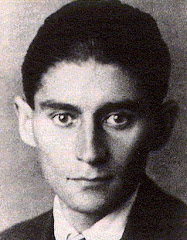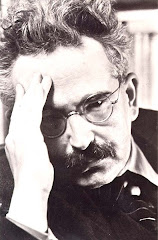The word "analysis," from the Greek, ana-lysis, literally meaning to un-tie or dis-entangle, suggests, in its place in the word "psycho-analysis," an untying of the soul, or to put it crudely, a disentangling of consciousness.
This seems rather odd, at first, given that psychoanalysis claims to understand consciousness and the inner-symbolic structure of the psyche. Yet further reflection leads us to notice that psychoanalysis can only make its claims to knowledge by arguing that it is an objective science. And so, while psychoanalysis focuses on subjectivity, it does so at its desk, observing its "cases" reclining on distant sofas. Psychoanalysis seeks to untie itself from its subject in order to know it. How gloriously paradoxical! How senseless one would be, on the one hand, to study a subject one has no interest in, yet how doomed one would be, if one was so invested in one's subject so as not to be able to reflect upon it.
There is, I believe, a solution to this paradox, and one which extends beyond the bounds of mere psychoanalysis. And that is that the untying which psychoanalysis seeks to accomplish is not simply an untying of itself as a science from its "patients," but an untying of the patients from themselves. If both subject and object are untied, somehow they are able to meet in the atopological between, a between as easy to miss as the Hogwart's Platform 9''3/4 (See J.K. Rowling's Harry Potter).
Analysis of anything, be it of the psyche, of the divine, of culture, music, geometry, algebra or rhetoric, succeeds when subject and object are able to untie from themselves and from each other in order to meet in non-space. I use the metaphor of space, simply because space is most obviously relational. Something is here in relation to this over there, but it is never here in virtue of itself. Hereness and thereness are contingent and contextual, but analysis brings them to an ec-static level.
Thus, analysis, though it often seems dry and forced, can, if it succeeds in doing what it's name suggests, truly un-knot the obvious and open up the secret. And this, I add as a footnote, is why religion must be critical and analytical if it is also to be spiritual. For spirituality is not opposed to analysis. Rather, it is what analysis, what thought, what deconstruction, make possible. The mystical experience is founded on doubt and skepticism, and this is what makes it especially powerful. For in the words of Franz Rosenzweig, "the mystic and the atheist shake hands."
Thursday, July 3, 2008
Subscribe to:
Post Comments (Atom)






No comments:
Post a Comment